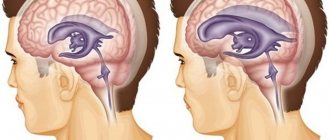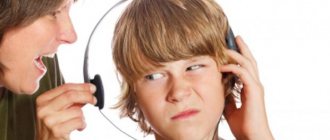April 05, 2021
Personal boundaries are an integral element of a healthy human personality. One of the important factors in maintaining personal space is tactile integrity. Someone else's touch can cause confusion and discomfort. Sometimes this happens by accident, sometimes someone needs to touch it in order to give some kind of signal. But, there are people who experience painful emotions if another person touches them - thixophobes .
Thixophobia can spread not only to strangers, but also to those close to you. This disorder causes people to perceive the touch of others as an invasion of personal territory or a threat to health and cleanliness. Thixophobes constantly maintain their distance in any circumstances, and where they fail to do this, personal psychological and physical discomfort begins.
Thixophobia is a general term for phobias of this kind. This disorder includes phobias of a narrower focus, for example, tactilophobia and others.
What it is
As we have already noted, haptophobia is associated with a fear of touch. Despite the fact that it does not occur as often as, for example, claustrophobia, it affects a person in a destructive way. Experts from the Very Well Mind portal, dedicated to mental health, note that haptophobia refers to specific phobias - fear of a certain object or situation. For some, it may manifest itself as a fear of any touch, while others are horrified by the touch of a person of a particular gender.
The irrational fear of someone touching you is not associated with other anxiety conditions such as social phobia or fear of intimacy. Many people who suffer from haptophobia are able to form strong friendships or relationships. Although in this case they may have another fear - that their loved one will leave without receiving the proper manifestation of physical affection. When a person with haptophobia avoids being touched, another may feel rejected.
How to identify a haptophobe
Fear of being touched by strangers is easily identified. Such individuals constantly keep their distance. They don't like to let people into their lives. It gets to the point where family relationships become more and more difficult. Such a person diligently avoids hugs; he does not want to communicate with his loved ones. Sexual relationships gradually cease, as they instill disgust and fear in the owner of the phobia.
Touch phobia makes a person more aggressive and irritable. When attempting physical contact, he reacts sharply, can shout at other people, hit them, if only his personal space has been violated. A haptophobe does not always do everything consciously. Such people wear closed clothes, try not to be in crowded places, and practically do not use public transport. Before going out into the world, they need to prepare themselves psychologically and emotionally.
The person himself may not understand that the phobia has long grown into a disease that interferes with normal life activities. In this case, haptophobia needs to be treated. Fear of being touched by strangers in some cases requires outside help, for example, you need to see a psychotherapist.
Symptoms of haptophobia
According to the medical portal Medical News Today, the anxiety caused by touch in a haptophobe can last as long as six months. In addition, physical contact can cause a new fear - agoraphobia. It is expressed in the fear of places in which one had to experience fear.
Experts identify the following symptoms that a haptophobe feels after coming into contact with a person:
- momentary fear or anxiety during the process or even when thinking about the process itself;
- panic attacks, complicated by rapid heartbeat, chills, tingling, increased sweating;
- general anxiety, which ultimately leads to low quality of life and depression;
- intentionally avoiding situations in which the patient might be touched;
- Other physical manifestations of haptophobia include hives, nausea, hyperventilation and fainting.
Typically, the symptoms of haptophobia cannot be controlled. Sometimes it may seem that they completely take over a person’s thoughts and subjugate his consciousness. This leads to him avoiding trigger situations or objects in every possible way. The patient switches to tactics to ensure his safety, but this can have a negative effect and, conversely, increase anxiety from the phobia.
Over time, the severity of the symptoms decreases somewhat, and the person gets used to them. However, constantly searching for more and more sophisticated ways to avoid triggers worsens the mental state. Experts from the British medical center Tranceform Psychology, however, say that most people suffering from haptophobia note the effectiveness of specially designed psychological courses and after attending them they get better.
Symptoms
Haptophobia manifests itself as anxiety during possible contact with others. A person, thinking that he will have to shake hands with strangers, experiences fear and tries to avoid contact at all costs.
Initially, a person who is afraid of touch reacts this way only to strangers. Touching loved ones does not cause a negative reaction. As the disease progresses, the person increasingly strives to isolate himself. He forbids anyone from entering his room and stops contacting others. The result is complete isolation. A person can no longer tolerate living together, even with loved ones. Breaks all social contacts.
In addition to psychological discomfort, haptophobia has physical (vegetative) manifestations:
- trembling in the arms, legs, neck;
- weakness, lightheadedness, faintness;
- dizziness;
- tingling in the limbs;
- dyspnea;
- palpitations, rapid pulse;
- nausea.
In severe cases, vomiting may occur. The autonomic system reacts differently for everyone. It depends on the characteristics of the body and on the cause of haptophobia.
Why can haptophobia develop?
Some people are sure that haptophobia is a disease of big cities. Living in a metropolis, a person wants to find his own quiet corner that will allow him to be alone with himself. However, the scientific community is confident that this disease may have deeper causes: neuroses and general disorders in the nervous system, puberty, hormonal imbalances, and brain damage. Fear of other people's touch can also manifest itself in people with autism spectrum disorder.
Another factor is physical and sexual abuse. The patient may not even remember the situation that happened to him, but the brain will still send alarm signals.
In addition, haptophobia can occur in those who already suffer from any mental illness or other pathology. Before making a diagnosis, a qualified professional must rule out potential conditions that may share symptoms with haptophobia. These include panic attacks, social anxiety disorder, and post-traumatic stress disorder.
In some cases, the disease may exhibit signs characteristic of ochlophobia - fear of crowds - and mysophobia - fear of germs and dirt. To develop a proper treatment plan, the doctor also needs to rule out allodynia, in which people avoid touch because it causes them physical pain. Haptophobia may also be associated with problems processing sensory information.
Fear of touching: how to get rid of it
First of all, a person must admit that he has haptophobia. After this, he must realize and accept the need for treatment.
Treatment measures are carried out based on the individual characteristics of the patient. During a personal conversation, the specialist determines the reasons why the phobia arose. In order for the fear of the touch of strangers to go away, sometimes it is simply enough to get rid of negative memories.
If the phobia is seriously advanced, then drug treatment and the use of antidepressants cannot be ruled out. To get rid of fear, psychologists advise doing yoga and partner dancing. Over time, you will enjoy contact with other people.
With this kind of phobia, patients often give up on their personal lives. To get rid of fear, you need regular sessions with a psychotherapist. If a person is taken out of his “comfort zone,” then he is no longer able to cope with the problem on his own.
Ways to overcome
Breathing exercises and various relaxation methods are used
to manage anxiety and panic attacks . Focusing on long, deep breaths reduces symptoms of touch anxiety. Mindfulness tactics, that is, understanding your thoughts and feelings at the moment of touch, help you develop individual ways to combat anxiety. Exercise and getting enough sleep are powerful ways to improve your overall mental health.
Patients with aphenphosmophobia generally respond well to treatment. Using daily techniques to overcome fear significantly reduces the negative impact of a phobia on a person’s life.
0
Terminology
Haptophobia gets its name by merging two Greek words, the first meaning “touch” and the second “fear . This disease has a number of synonyms, which are called aphephobia, haphephobia and haphophobia. These terms are used as a name for pathological fear, which manifests itself in the form of an obsessive fear of being touched by others. This disorder is one of a number of isolated pathologies that are characterized by a complete loss of control over one’s behavior.
The presence of this disorder may be evidence of the development of a more dominant disease, among which psychasthenia, autism and neurosis should be highlighted.
In the first stages of its development, haphephobia has a strong resemblance to increased disgust or specific character traits. However, in reality, a person does not at all want to cause harm to others. Hugging and other forms of touching can be really painful for a haptophobe.
Diagnostics
If a person notices symptoms of haptophobia, he will have to see a doctor to confirm the diagnosis. It is impossible to diagnose yourself, just as it is impossible to get a haircut, cut out an appendix, or heal a tooth on your own. Entrust your health to a professional - a person who has studied psychology for many years. This could be a psychotherapist, psychiatrist, neurologist.
Fear of touch is diagnosed using special questionnaires and tests for various disorders. Remember: most often, haptophobia is not an independent illness. This is a “component” for another, more serious mental disorder.
One way or another, you shouldn’t be afraid of such symptoms. Psychology is actively developing, and all ailments are treatable.
Impaired social interaction
Haptophobia forces a person to isolate himself from the company of other people. Alone, the “patient” is calmer. Over time, he becomes more and more withdrawn, because we all strive to protect ourselves from danger and find spiritual comfort. Also haptophobes. But their concept of safety and comfort is distorted. For them it is the absence of touching. No potential danger. Lack of people nearby.
This problem often makes it impossible to work and communicate. A person leaves a place of work where he needs to constantly interact with others. He becomes withdrawn, and this negatively affects the psyche. For mental balance, a person needs communication, communication, interaction. This is how we are made.











